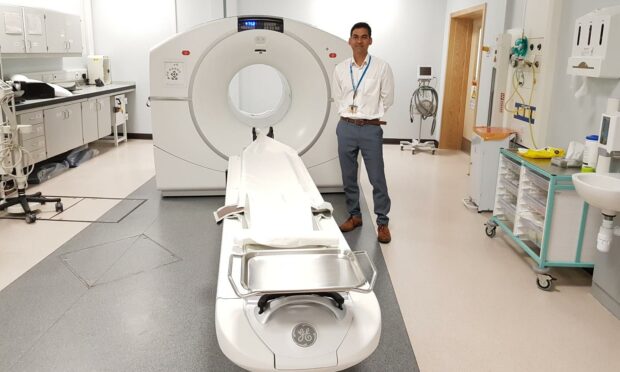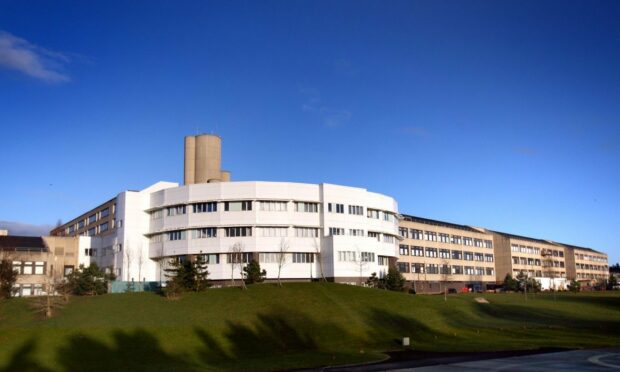Tayside patients are among the first in Scotland to use a new scanning service that can help identify early stages of cancer spread.
The advanced scanning technology called Gallium PET/CT (Gallium Positron Emission Temography with Computerised Tomography) can give a more accurate diagnosis of a possible cancer relapse.
It helps recognise exactly where cancer has spread to in the body, following initial treatment.
A number of patients at Ninewells Hospital have already had a Gallium PET/CT scan as part of their cancer treatment.
The technology is funded by the Scottish Government, with the service initially being used for patients with neuroendocrine cancers before it is made available to patients with prostate cancer.
The new service is led by NHS Tayside‘s consultant radiologist Dr Prasad Gunter.
‘Crucial new addition’
Dr Gunter said: “The Gallium PET/CT service is a crucial new addition to the existing Tayside PET/CT service, which has helped in the management of thousands of patients since its introduction in 2010, predominantly in cancer patients.
“Following a diagnosis of cancer, treatment plans are made according to the stage of the disease in each patient.
“Accurate disease staging is vital and requires the use of PET/CT scans and this is where the advanced images produced by a Gallium PET/CT can benefit cancer patients.
Patients do not need to travel outwith the region any more for other specialist scans
“Prostate cancer is the most common cancer in males in UK and this new addition to our scanning services will be hugely helpful in their management pathways.
“This new scanning method will allow clinicians to get quick and accurate information about whether advanced prostate cancer has spread to another part of the body.
“Importantly being able to carry out Gallium PET/CT scans in Tayside means that patients do not need to travel outwith the region any more for other specialist scans and they now have access to even better and more tailored investigations if appropriate.”

